Rock Island Should Go Back To 3 a.m. Closing For Downtown
Imagine it’s Super Bowl Sunday, pre-covid. You’re in your home, minding your own business, watching TV, having a couple beverages with a number of friends, having a good time.
Across the street, you see lights on in your neighbors’ houses. You see cars out front. They have guests too, and all of you are enjoying a weekend night.
Suddenly, the evening is split by the flashing lights and squeal of two police cars, and an ambulance in tow, roaring down your street and pulling up to your neighbor’s house.
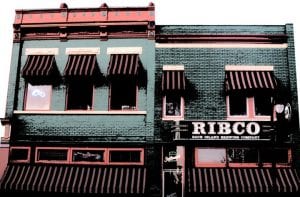
Rock Island Brewing Co. in The District saw its 2020 schedule of live music decimated by covid, and now it’s being hit hard by the city’s decision to extend its 2 a.m. closing time for downtown.
Everyone is looking out the windows to see what’s going on.
You all see your neighbor being brought out in handcuffs.
Then you see another person on a stretcher. It doesn’t look good.
The ambulance speeds off.
The police car with your neighbor in it speeds off.
One police car remains.
Now, how would you feel if that police officer went door to door and told you and the rest of the people on your street, who had nothing to do with the domestic dispute, that you had to disperse your parties, that everyone had to go home, and that there was going to be a curfew on your street from now on?
Would that be fair?
Of course not.
It seems ridiculous to even consider, when you look at all the facts involved.

Billy Bob’s in Rock Island closed its doors last year due to business losses incurred due to the covid pandemic.
Well, welcome to the situation in the Rock Island downtown right now.
Last Monday, the Rock Island city council voted 4-3 to indefinitely maintain a 2 a.m. closing time for nightclubs in the downtown. Nightclub owners were incensed. After having to suffer through the financial strain of covid, with their businesses already hit hard (many of them near closing, following the clubs that have already shut down including Billy Bob’s and The Black Sheep), many of them felt the city was being unreasonable and unfair to the downtown clubs.
“This is ridiculous,” said Terry Tilka, who owns RIBCO and 2nd Ave nightclubs, in a lengthy conversation we had after the decision. “They’re killing us. They’re killing the downtown.”
The reasons for the continuation of the 2 a.m. given by both city council members and Rock Island Mayor Mike Thoms were that they felt it was best for the safety and image of the city and the downtown.
But is it?
Does the actual data match that rationale?
No. No, it does not.
And so, the next time the council meets, they should do the right thing, and put the closing time back to 3 a.m. They need to stop penalizing innocent business owners who have been doing the right thing.
Now, that said, I feel they should follow the same path as Moline Mayor Stephanie Acri, and use that 2 a.m. closing time as a penalty if a specific club is shown to be derelict in its duties to provide a safe environment. However, as long as a club is doing everything it can to

Stephanie Acri is mayor of Moline.
maintain a safe and secure environment, just like in Moline, it should be allowed to retain its 3 a.m. closing time.
Rock Island has been a mess already due to covid. Businesses have been open, closed, open with restrictions, closed again… it’s been a terrible year. Nightclubs and entertainment venues have been especially hard hit, particularly spots like RIBCO.
“Covid took out our entire schedule, nobody’s touring, we can’t book anybody,” Tilka said. “It’s been like that for the last year. And now we’ve got to deal with this. How are we supposed to stay open when a lot of our business is in that last hour, that last few hours?”
Mayor Mike Thoms, in a lengthy conversation with me, addressed the various concerns raised by Tilka and other downtown club owners. Mayor Thoms also brought up a number of his own concerns, echoed by members of the council, about a potential rising number of problems in that midnight to 3 a.m. window, and how the number of incidents has been shown to rise in each subsequent hour. The study Thoms cited is certainly reliable, and its reach is nationwide, spanning data over a number of markets. I don’t dispute the study or its findings.
But, other than in a broad overarching sense, is it relevant to this particular situation, and is this type of action merited?
As I pointed out to Mayor Thoms, saying that the chance of bar fights increases as people get more drunk is like saying your chances of getting wet increase the deeper you wade into a pool. This is nothing new. It’s also nothing unique to Rock Island, or the Quad-Cities. Which is why, when bringing empirical evidence into the picture as a justification for action, you have to instead look at the micro-picture instead of the macro. You can’t just generalize, you have to be specific in instances such as these, before making a sweeping judgement that needlessly penalizes those who don’t deserve to be punished.

Terry Tilka is owner of RIBCO and 2nd Ave.
And when you look at the details of the data, and the context, a different picture emerges.
One which shows that the majority of the downtown nightclubs are safe, just as safe if not more so than any other nightclubs in the Quad-Cities, and, therefore, shouldn’t be held to a more rigid standard.
If you’ve ever been to the downtown clubs, you can see this for yourself. As someone who has been to the downtown Rock Island clubs literally thousands of times, I can tell you, anecdotally, that the number of times I’ve seen fights and other violent behavior has been minimal, and certainly no more so than when I’ve been to Davenport, Moline, East Moline or Bettendorf clubs. I’ve seen thousands of shows at RIBCO and the next bar fight I see there will be my first. Same thing with Icons. Same thing with Big Swing, and its predecessor, The Blue Cat. Same thing with MD Green’s, which is populated by an artsy crowd who are lovers rather than fighters, more interested in singing karaoke than anything else.
Have I seen some fights in the dance clubs? Yup, I have. Same as I have in dance clubs all across this country. And probably 98 percent of them involve drunk people in romantic entanglements. Which is to say, they’re not random, they’re tied in with a specific series of events, involving people getting too familiar with one another (or one another’s significant others).
Those events have nothing to do with the nightclub owners. I should also note that those dance clubs tend to have a lot more security, and that those fights get broken up pretty quickly.
Is that a valid reason for closing the clubs at 2 instead of 3? People infrequently fighting over romantic entanglements in dance clubs?
I don’t think it is.
So now we get to one of the biggest reasons being given for the closure – the shooting that took place in late August downtown, near the Smoking Dog, and the negative public relations fallout the city had after it occurred. One person was killed and five others were injured when a man discharged his weapon at another man.
Was this a random shooting?
No, it was not.
According to various sources, allegedly the two people involved had a dispute prior to the shooting. I’m certainly not justifying it, but that set of circumstances, a running dispute between two individuals, is not unique to downtown. It could’ve happened anywhere in the city, it

Rock Island Mayor Mike Thoms
could’ve happened anywhere in any of the Quad-Cities. It could’ve happened in your neighborhood, during a party. If something happened at one of your neighbors’ homes, do you think it would be fair to penalize you for that?
The shooting just happened to occur downtown. That’s not the fault of the nightclub owners downtown. Did they cause it? No. Did they do anything to encourage it or did they have a decided lack of security which contributed to it happening? No. And they shouldn’t be the ones penalized for it.
Along those same lines, the same thing could be said of any issues that arise from the various people loitering about during that 2 to 3 a.m. hour. Even Mayor Thoms admitted in our conversation that the people loitering were not going into the nightclubs, and it wasn’t the nightclub owners’ fault for the “flash mobs” loitering.
So why should the nightclubs bear responsibility for their actions?
And why should the nightclubs’ business be penalized?
If the nightclub owners are doing everything within their power to legally and safely operate their businesses, and the vast majority of the people patronizing their businesses are causing no harm, then why should they be blamed?
Let’s look at another area in the Quad-Cities where there have been multiple shootings.
NorthPark Mall.
There have been multiple shootings all over Davenport, and NorthPark Mall has been the site for a few of them, as well as the site for multiple major fights and melees. In fact, there have been more shootings and violence reported in NorthPark Mall than there have been reported on the downtown Rock Island strip of nightclubs.
So should we blame Sbarro or Wetzels Pretzels?
Have all the businesses at the mall been subject to a new permanent curfew after the repeated violence at NorthPark? No.
So how did the city react to the shootings?
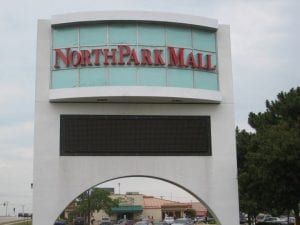
NorthPark Mall in Davenport has seen a number of altercations between patrons over the past few years.
They upped security at the mall. The same solution that should be used if downtown Rock Island loitering is becoming a problem.
This is nothing new. There’s increased security at any event where a lot of people congregate. Concerts. Fairs. Festivals. You get a lot of people together, you put alcohol into the equation, or even if not in the case of the mall, and there’s a chance for a fight or some other dispute. It’s sad to say, but it’s the law of averages. You get enough people together, and chances are, you’re going to have some jerks in the mix, and problems could arise.
But does that mean you never have festivals, or fairs, or concerts?
No. It means you plan ahead and have security on hand in case there are issues.
Rock Island has typically been very good in regard to this. Whenever I’ve been downtown near closing time, there have always been multiple police and cars down there. There’s always been security. RIBCO and 2nd Ave, Tilka’s bars, are probably the best I’ve seen in regard to that. They always have security on hand and Tilka himself is there most of the time.
Does that guarantee that nothing is going to happen, ever?
No. It does not. Yes, if you look at the percentages, the vast majority of the time, that security – in downtown Rock Island and elsewhere – has meant far fewer incidents. But no amount of security anywhere can guarantee 100 percent that there will never be an incident.
It’s the same way that pushing the closing time up to 2 from 3 cannot guarantee that nothing is going to happen.
After all, take a look at the shooting that occurred in late August.
A shooting that happened just prior to 2 a.m.
The new closing time could’ve actually made that shooting and its fallout worse, because more people would’ve been outside leaving the bars, and could’ve potentially been hit.
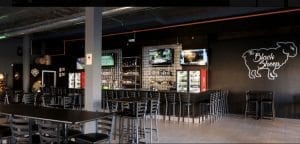
The Black Sheep is one of the nightclubs in downtown Rock Island to have closed over the past year.
Is that a hypothetical? Is that a reach? Yeah, it sure is. It’s based upon a broad extrapolation of a singular event into a hypothetical situation that only bears a tenuous connection to the reality of the situation as it stands based on facts.
Exactly like the reasons the city is giving for this change.
Rock Island bars have had a 3 a.m. closing time for decades with very few incidents beyond the typical that you find in every city. That’s probably more than thirty years of a sample size from which to gain data. Where is that data that shows, specifically in downtown Rock Island, not in towns across the country, that violent incidents rise between 2 and 3, and where is the data that shows that is specifically tied in to that hour, compared to other cities that close at 2? Is it specifically that 2 to 3 hour, or is it just the last hour of a bar being open? Because if it’s just the latter, the same thing would extrapolate to between 1 and 2 if the bars shut at 2.
The downtown clubs had a 2 a.m. closing time for most of last year due to covid. They extended the closing time back to 3 in July. I have yet to see any specific data from the city that shows that there was any increase in problems tied specifically to that extra hour in business. Ergo, I’ve yet to see any concrete justification beyond conjecture that this move is justified. Covid numbers are exponentially down in Rock Island county over the past few months and the nightclubs are following capacity requirements. The shooting in August was not contextually tied specifically to the downtown or its businesses. I’ve seen no data showing a radical spike in violent incidents or problems over the past few months in the downtown.
I think the city council members and Mayor Thoms have good intentions in what they’re trying to do. But good intentions do not replace data and context in making sound decisions, especially when those decisions involve the jobs and careers of hundreds of people, many of whom have worked decades to help the city and its downtown.
The city council and the Mayor need to take appropriate action commensurate to the situation and all factors involved.
Next meeting, vote to let the downtown bars stay open until 3 a.m.



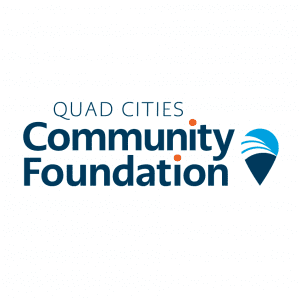
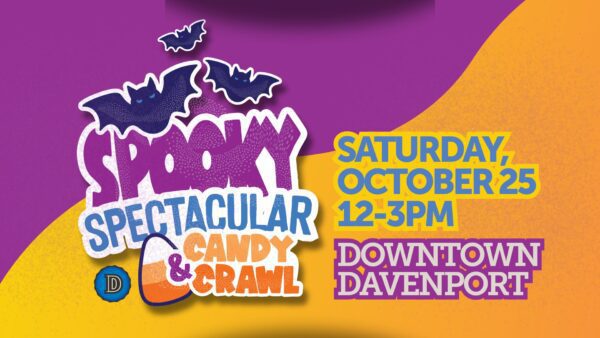








Leave a Reply
You must be logged in to post a comment.